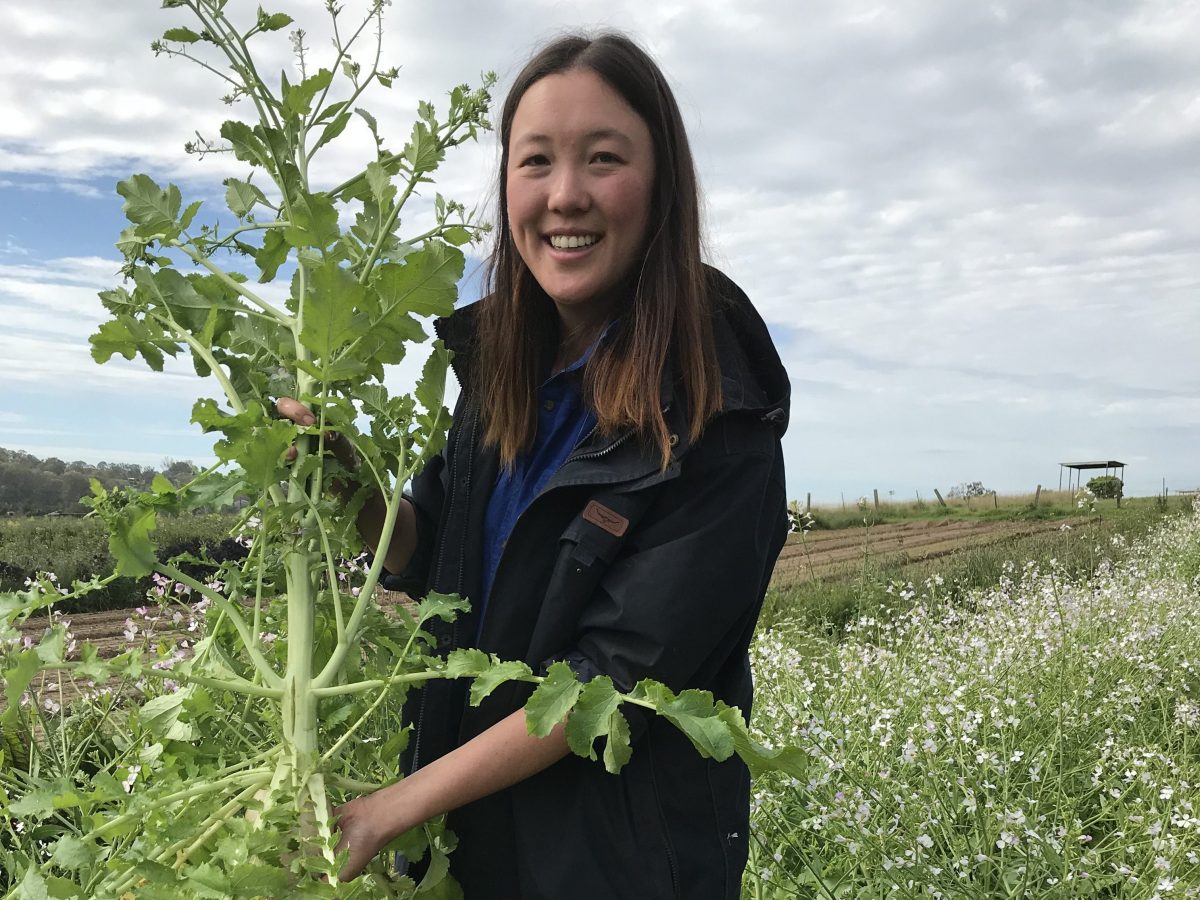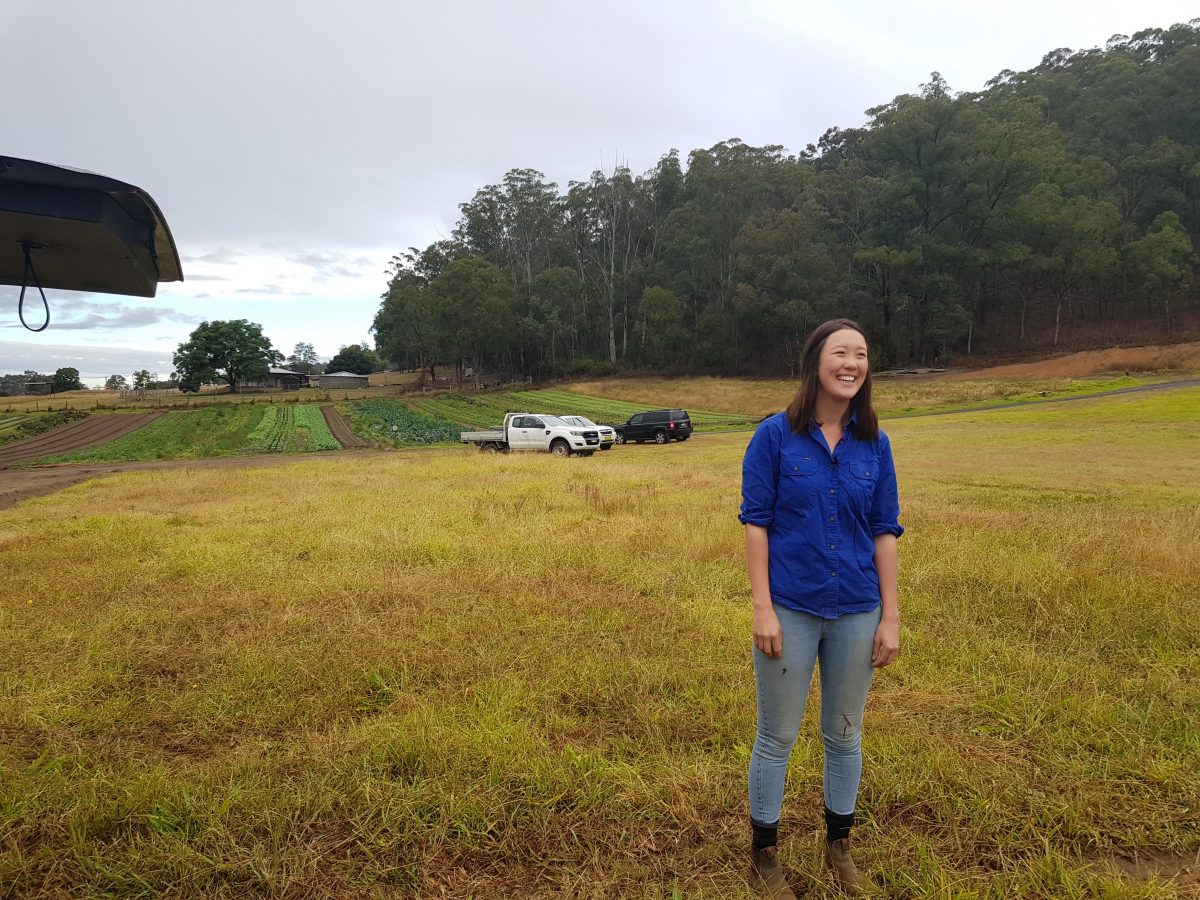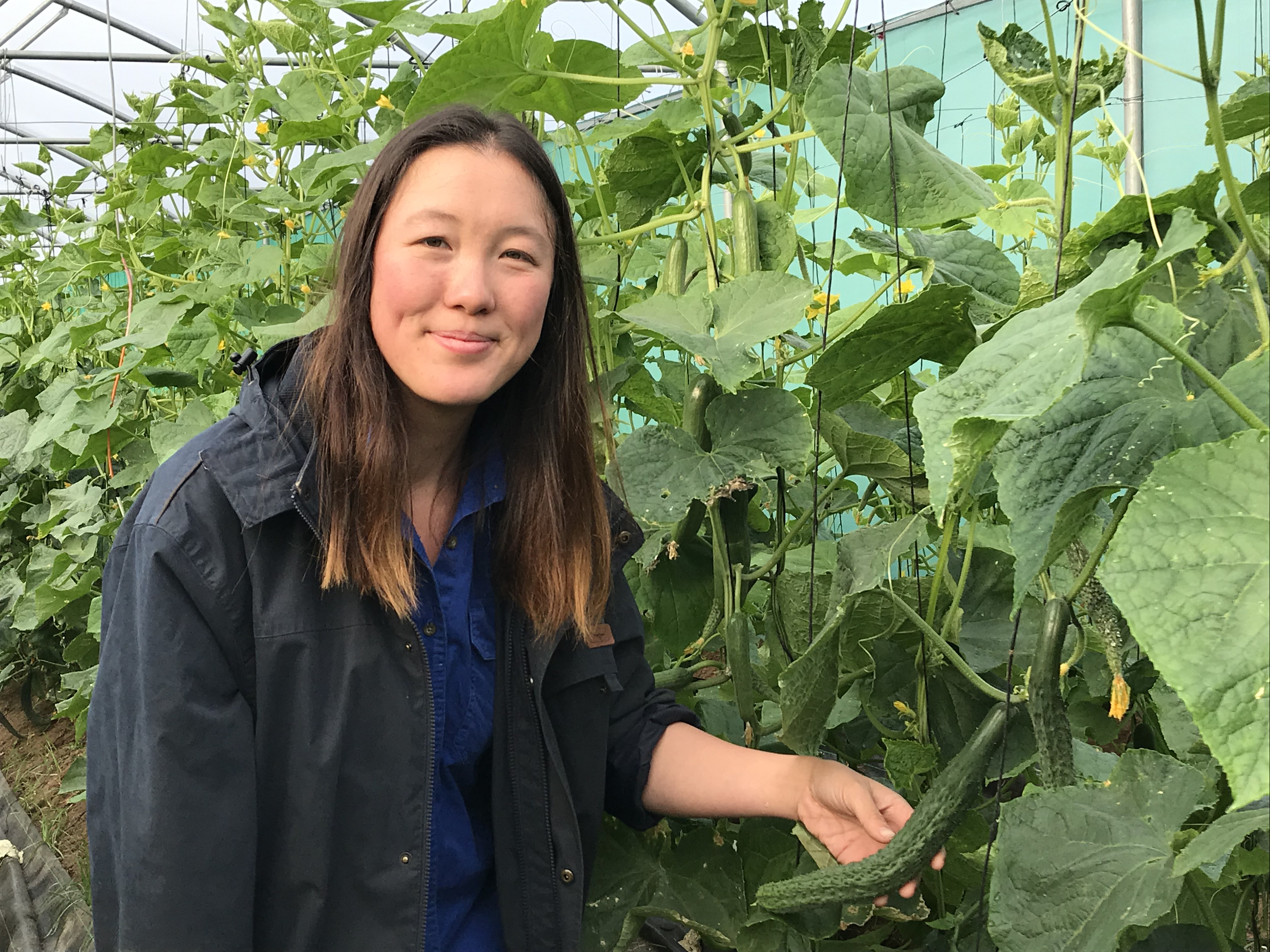As a food grower, you might think I’m part of a dying breed of people. Climate change, scarcity of arable land and price pressures are enough to add worry lines to the most weathered farmer’s face. And while I worry about the future, my farming journey has only just begun.
I’m 25 years old. The life I have chosen may not be glamorous but I love the challenges and opportunities of growing food in Sydney – Western Sydney, to be precise – on a small patch of land amid a world undergoing rapid change.
I grow certified organic vegetables at Rita’s Farm on 23 hectares in Kemps Creek and Wallacia, New South Wales – not far from Australia’s biggest construction site, that will soon be Western Sydney International Airport.
It’s hard not to notice the barrage of ‘FOR SALE’ signs going up everywhere, which just add to the challenge of being a young commercial farmer in the Sydney Basin. The question we face is not just ‘Are we profitable?’ but ‘How profitable are we compared with building a Park N Fly?’
Recently we heard that 40 properties will be acquired to build the M12, which will connect the new airport to the M7. Some of my neighbours are waiting for an opportunity like that – wondering how long there will be a place for agriculture in Western Sydney. Throw drought, rising labour costs, long hours and hard work into the mix and it’s a tempting proposition.
But I see it differently. The new airport is an opportunity for us to up our game. To work with manufacturers and food researchers to create ‘future foods’, not just for Sydney but for the world.

“To secure my future on the land, to be able to continue to do what I love – profitably – I need to look beyond my local markets. I need to recognise and embrace the opportunities as well as the challenges in having a 24-hour international airport just down the road. Initiatives such as the Future Food Systems Cooperative Research Centre are a great way to start doing this.” – Christina Kelman. Credit: Liverpool City Council.
What we eat doesn’t just enable us to survive; it allows us to thrive. It provides health, wellbeing and happiness. (When was the last time eating a great meal didn’t make you feel happy?) Understanding how crucial agriculture is to us as humans is something I’m reminded of every time a customer says “Thank you” for the best kale they’ve ever tasted.
But to secure my future on the land, to be able to continue to do what I love – profitably – I need to look beyond my local markets. I need to recognise and embrace the opportunities as well as the challenges in having a 24-hour international airport just down the road. Initiatives such as the Future Food Systems Cooperative Research Centre are a great way to start doing this.
The CRC includes people from many different disciplines, ranging from farmers like me to researchers and representatives from transport companies and manufacturers, and we have started to discuss how we will make this 10-year project work in Liverpool. It could mean converting our produce into high-value products; opening export channels to small grower cooperatives; investing in technology; or research into the health benefits of fruit and vegetables.
I believe there is a place for agriculture at the fringes of our cities. We need to tell the story of growing food in Western Sydney. Just as we value wines grown and produced in the Hunter Valley, we have a wonderful story to tell about the produce grown in our region.
Part of that story comes from the migrant growers ploughing their generational knowledge into the land here – like the way my Chinese-born mother taught me to cultivate leafy greens for their health benefits, or the way Lebanese, Italian and Vietnamese families bring their food and culture from paddock to plate.
I love the story of sustainability and locality in your bunch of kale grown in Western Sydney.

Liverpool area grower Christina Kelman believes that if local food producers are to thrive going forward, they need to plan for a smarter, more sustainable future now. Credit: Liverpool City Council
In seven years, Western Sydney International Airport will be open and I’ll turn 32 years old. The dream? To bring organically farmed vegetables to the world, something that never crossed my parents’ horizon.
Many people my age were told to pursue ‘better things’, warned by our parents that a life spent farming would be gruelling. For those of us who stayed despite our parents’ cautions, now is the time to get involved in the conversation about the future of agriculture on Sydney’s outskirts – about the benefits of growing food organically, producing foods with higher nutritional value, improving animal welfare, championing imperfect produce, reducing food miles and mitigating the impacts of climate change.
South-Western Sydney is changing rapidly; a decade from now it will be unrecognisable. Potentially, food production has a big role to play in the region going forward – but if that’s to happen, we need to start planning now.
We need to look past those ‘FOR SALE’ signs and engage in conversations like the one I’m continuing with the Future Food Systems CRC to ensure that by the time the planes start taking off at Western Sydney International Airport, we are growing the sort of food that provides health, wellbeing and happiness to Sydney and the wider world.
Christina Kelman, Liverpool area grower
Christina Kelman is a 25-year-old organic vegetable grower from Wallacia and the 2019 Nuffield Australia Farming Scholar. Christina is using her Nuffield scholarship to travel to Europe, the Netherlands, India and Canada as she researches innovative and productive sustainable food systems.


